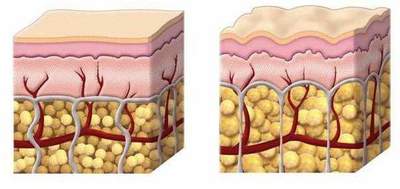7 menstrual symptoms, which can not be considered normal
Discomfort during menstruation - so familiar to most of us, a phenomenon that is difficult to notice when something goes wrong. List critical days of symptoms varied, and not all of them are normal. But in what cases do you need to worry about their health.
1. Large blood clots

If during menstruation you notice small blood clots, you have nothing to worry about - sometimes, especially during heavy bleeding, anticoagulants (substances that prevent the formation of blood clots) in your body does not have time to cope with their work.
However, large blood formation during menstruation may be a symptom of the real problem: from uterine fibroids, thyroid disease to some cancers. Sometimes they are a symptom of miscarriage, ectopic pregnancy, or that the body is difficult to adapt to a new IUD.
In any case, you should not panic, but you should contact your gynecologist. Especially if in addition to the large blood clots you notice other changes in your cycle.
2. Intense cramps

The cause of spasmodic abdominal pain during menstruation is often a contraction of the uterus, rejects the functional layer of the endometrium. But if you every time feel so strong cramps that can not function normally and regularly forced to miss work or school, check to see if you have more serious health problems. Extremely painful menstruation can be a symptom of endometriosis - a disorder in which endometrium starts to grow outside. In addition to signs of endometriosis include pain during sex and irregular cycle.
3. Severe pain
Back pain before menstruation or during it - another common symptom. He, like other unpleasant - cramps in the abdomen, nausea, dizziness - is associated with increased production of prostaglandins. It is a biologically active substance which affects the uterus, causing it to cut.
However, as is the case with other symptoms, intolerable pain in the back and pelvic region can not be explained only by prostaglandin. These sensations also leads endometriosis or uterine fibroids. In this case, the pain can appear not only during menstruation, but also at other times during the month.
4. Very heavy bleeding

According to the large medical encyclopedia, menstruating woman loses an average of 50-100 milliliters of blood, although more correct to call it a menstrual fluid, because in addition to the blood in her vagina secretion glands, the secret of cervical glands and endometrial tissue. In this case the individual range lies in the range from 10 to 250 milliliters. More abundant or scanty discharge may be a symptom of an abnormality in the body. Obviously, most of us do not make the critical days with a measured glass sandwiched between the thighs, but tell that to the intensity of your secretions that something is wrong, may hygiene. According to the US Centers for Disease Control and Prevention, if a woman has to change the pad or tampon more often than 1 time per hour, up to that night, or menstruation is more than 7 days in a row, we are talking about abnormal bleeding. It can cause different problems: violations of the thyroid, pelvic inflammatory disease, defective intrauterine devices, and others.
5. Spotting before or after menstruation
In most cases, rare bleeding between periods of menstruation may cause birth control pills. But they also occur in the uterine or cervical polyps (eg, they may cause bleeding after sex) or pregnancy.
Speak to the doctor that he was convinced that with your health is all right, and maybe recommend other drugs and contraceptive methods.
6. Pain during a hike in the toilet

This is a rare, but serious symptom. If you are sick to go to the toilet during menstruation, perhaps, the reason for this - endometriosis. Sometimes the lining of the uterus grows on the line or the small intestine. This leads to a painful stool, diarrhea or constipation.
This form of endometriosis is easily confused with irritable bowel syndrome, which is why it is so important to talk to your gynecologist and get different opinions.
7. Any changes in your usual symptoms
The occurrence of menstruation every woman goes its own way. All the rules are very arbitrary, so your main reason to guard - changes in the usual symptoms. If earlier menstruation was short, now long, it was abundant, and now lean, easily passed, and now painful, or vice versa: to check whether all with you in order. This can be a harmless change related to hormones or age. But it can also be a serious health problem.













































